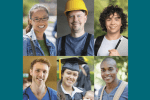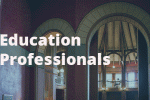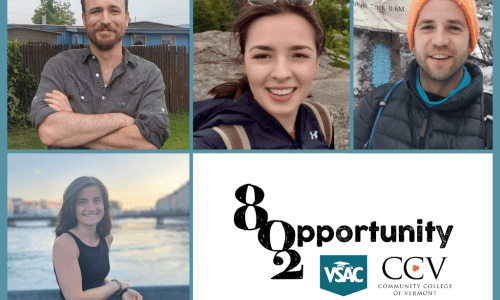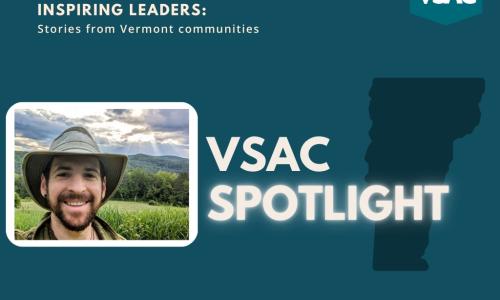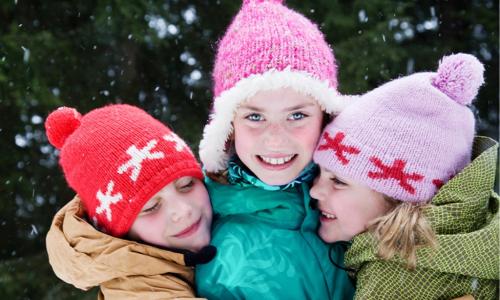Planning for college or training this year? Apply for the Vermont Grant.
Hawa Abdi wants to help others create second chances

When 18-year-old Hawa Abdi was 2 years old, her parents made the decision to emigrate from Africa to the United States, where they knew they could give their children a life filled with education and opportunity, rather than poverty and political persecution – things they had personally experienced in their home countries of Somalia and Tanzania. But they also knew that moving halfway across the world, to a tiny state called Vermont, would be a scary thing for their kids, so they told them that they were just taking a week’s vacation.
“And yet, we are still here,” muses Hawa playfully.
Humor is one way that Hawa has learned to deal with the challenges that have come her way, whether the result of her particular upbringing as the child of immigrants, the general experience of being a teenager in America, or, most recently, graduating from high school during COVID-19. “One of my favorite things about Hawa is her perspective and sense of humor,” said Soren Dews, her VSAC Outreach Counselor, who guided and mentored Hawa on her college search process. “She's never short of a witty remark.”
True to form, Hawa – who graduated from Burlington High School earlier this year – talks about the current pandemic as if it were a capricious witch in a fairy tale.
“COVID said ‘no senior year for you,’ and then she said ‘no freshman year of college.’ There’s not much I can do about it, so I’ll be studying online from home,” she says – excited to start her first year at Simmons University, a school near Fenway Park in Boston known for its program on social work.
That’s what Hawa wants to major in, looking ahead to a future working to improve the foster care system from the inside.
“I've just always been interested in the foster home system and in the whole process of helping people adopt. I hope, in the future, that I can become a foster parent as well. The relationship is so beautiful because it's not blood-related; you're choosing to love them no matter what situations they were in, in the past.”
The idea of second chances may be something that particularly appeals to Hawa, given that’s what her parents were looking for when they came to America. “We came here for my parents to give us a better education and a better life. They've always said you have to study hard so you can go to college and you can get a good job, just constantly, constantly, constantly. It's given me a really good work ethic.”
While her parents always encouraged her to go to college, Hawa says that they didn’t understand the process. “All they know is you're going to college. They don't understand the idea of applying, possibly being rejected, and then the whole project of putting together a financial aid package, and if it's going to include loans, or out-of-pocket costs, stuff like that.”
So Hawa sought out some extra help.
“I kept asking my friends, ‘how do you get in contact with these VSAC people?’” When she kept getting vague answers, Hawa – typically shy and a bit anxious about meeting new people – overcame her trepidations and took action. “When my friend told me, ‘Okay, so that's Soren's office. I think you can just email him but I don't quite remember his email right now but I'll text you it later,’ and then he ran off to class – I figured, you know what? I’m over it,” she laughs.
“So one day, Hawa just appeared in my office,” says Soren. “She had not contacted me before, but she just knocked on the door and was like, ‘Hello? I'm interested in joining this.’” Hawa worked with Soren for two years under VSAC’s Talent Search program, designed to help lower-income students pursue and achieve their dreams of higher education.
“VSAC was very fun because Soren and I really connected,” Hawa says. “But I was also very surprised about just how much I learned, because the whole college process is very complicated and very tedious, and it gave me a lot of anxiety. But working with Soren, it was surprisingly easy. Every time I'd end a meeting, I'd say, oh, that's all? There's not more stuff? Okay, cool. Working with Soren, I had all of my college stuff done, whereas my friends were like, ‘I really need to get this and this and this and this done.’ And I said, ‘I've had that done for months.’”
Had she not walked into Soren’s office that day, she believes she would have likely gone to CCV for two years, then -- hopefully – gone on to another school to earn her bachelor’s degree. “But I would've had a bigger bill, definitely.”
Soren, however, is quick to give Hawa the credit. “This is a student who, when they want to do something, can go after it and do it for themselves.”
Indeed, Hawa’s academic achievements and a compelling college essay – more on that in a moment – earned her almost a free four-year ride to college. Hawa also received the Barbara Gauntlett Scholarship, the best scholarship that Burlington High School has to offer, for a total of $20,000.
The essay is a captivating story that starts with long odds – her parents were “star-crossed lovers,” one being Muslim, the other Catholic; her father witnessed his entire family’s execution and was forced to flee his country; and Hawa herself almost died as a baby – then goes on to the triumph of coming to America, but also the feelings of loss that came, for Hawa, with growing up in a household that was working hard to become fully “American.”
“I lost my culture, language, family and identity,” she writes. “Because my family was learning English, that’s all we spoke in the house … and I slowly lost my dialect. I can no longer speak to family members or communicate with them because I no longer know the language. This caused me to question who I was as a person.”
“I didn't quite fit in with the other Africans, but I also didn't quite fit in with the Americans, so it was a very, very weird situation,” Hawa says now, looking back on her elementary school days. “At first, I had a lot of African friends. They were really great people, but it was awkward for me being around them, because sometimes they would speak in their native language. And they also had their religions that they were very, very faithful to. I did not have any religion whatsoever. So, I didn't quite know how to connect with them.”
In middle school, she started becoming friends with more American kids, which also had its awkward social moments, Hawa recalls. “They'd be like, ‘Oh, let's have a slumber party tonight.’ And I’d have to say, ‘I need like two weeks’ notice. My mother needs to meet your mother and know her for more than three days, so we can't do it tonight. How about in two months? That's just how my family does it.’ So, it was really hard to do things outside of school.” That part got easier as she got into high school, she says, because everyone started to understand and appreciate cultural differences in their peers’ households.
Ultimately, Hawa reflects, the opportunities she gained by coming to America – and opportunities of self-discovery, not just of education and livelihood -- far outweigh the challenges she has experienced. She ends the piece this way: “Looking back on my life, I realize that I have lost and gained many things. I lost my culture, language and sense of self, but I gained a new culture, a new language and learned so much more about myself as a person. … I will constantly be searching for who I am and my purpose in life, but isn’t that the great adventure of life: learning and experiencing amazing things, in search of yourself.”
Need help with pursuing your career goals and education needs? VSAC is here to help you. Serving our community is at the heart of all we do. During this ever-changing time, we remain available and committed to help you navigate all your career and education needs. No question or worry is too small or too big to reach out to us and ask for help.

